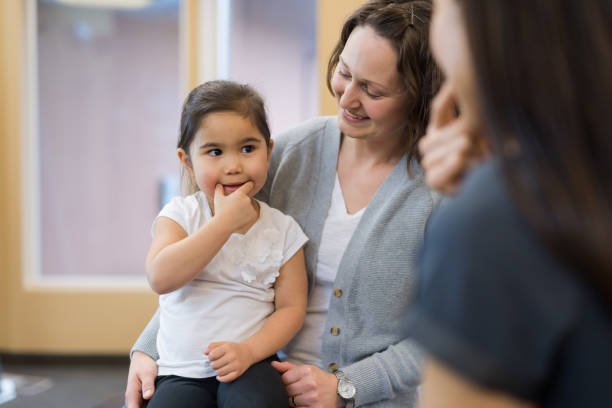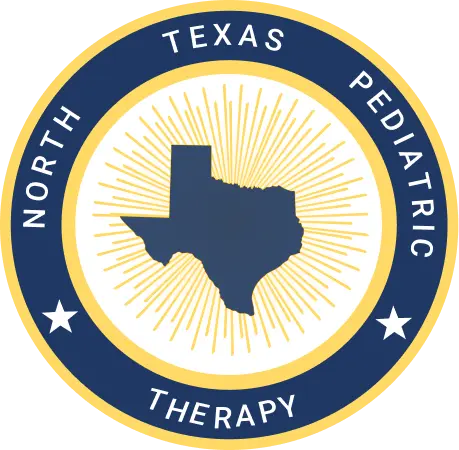In this day and age, being multilingual does not set you apart; it’s the norm. As many families proudly nurture children who learn to speak more than one language, they give their children the cognitive advantages of being bilingual.
However, there is a section of multilingual child language development where speech delay becomes problematic.
Here, we’ll discuss some of the challenges that parents and caregivers should understand and when to seek help for speech therapy.

Understanding Speech Development in Multilingual Children
We know that bilingual children may not follow the same pattern as monolingual children when they acquire language. This is sometimes mistaken for a speech delay rather than just another developmental timeline.
Normal Variations in Bilingual Speech Development
- Code-Switching: Many bilingual children switch languages back and forth — sometimes within one sentence. It’s a natural part of bilingual language development, not necessarily something to worry about.
- Vocabulary Development: Bilingual children may have had fewer words in each language than monolingual kids. Regardless, when both languages are reckoned with, their syncopated vocabulary is usually or sometimes the same or more significant.
- Grammar and Syntax: Bilingual children tend to take just a little longer than monolinguals to learn the rules of each language.
Recognizing True Speech Delays
While variations are typical, it’s essential to be aware of signs that might indicate an actual speech delay:
- Age two when they lack understanding of either language.
- Age three or more is the age at which difficulty is formed into sentences.
- Problems in social interactions and communication.
The Role of Bilingual Speech Therapy
If a child is bilingual and has speech delays, it is very important to see a therapist who knows how both languages develop.
These children are provided with bilingual speech therapy, which is specially designed to cater to their bilingual needs without impacting their speech.
Critical Components of Bilingual Speech Therapy in Detail
To be effective with bilingual speech therapy, one has to speak with a child in such a way that respects and builds up a child’s language skills in several languages. Below are the detailed elements that form the core of an effective bilingual speech therapy program:
- Comprehensive Assessment: The examination in both the child’s languages is thorough. This is to assess vocabulary, grammar, pronunciation, etc. As such, the therapist should employ culturally appropriate, linguistically valid, and accurate ways of assessing the child’s language abilities and difficulties in each of the child’s languages.
- Tailored Therapy Plans: Based on the assessment findings, individual therapy plans are formulated. The plans take linguistic background, proficiency in each language, and personal interests into account. In therapy sessions, both languages may be used, with one used to help incorporate the concept being reinforced in the other. This serves to boost overall communication skills and develop language balance.
- Parental Involvement: Bilingual speech therapy would love it if parents could be involved. Therapists work with them closely to educate them about language development and offer home strategies to implement. Often, the suggested activities tend to be those you can do inside of daily routines, such as singing songs, reading bilingual books, and talking in two languages.
Read more on how to Enhance Speech Skills: Best Speech Therapist’s Techniques You Can Use at Home

- Cultural Sensitivity: Respect the cultural context of both languages and understand. They need to consider sensitivities to cultural nuances when it comes to language use and communication styles. By incorporating culturally meaningful materials and context, therapists engage the child in more relatable and powerful sessions.
- Regular Progress Monitoring: Constant assessment is necessary to track your child’s progress and make necessary adjustments to your therapy plan. It’s all about regular check-ins and assessments to gauge improvements and address ongoing problems. Changing goals and strategies ensures that the therapy continues to be effective and relevant to the child’s changing needs.
- Collaborative Multidisciplinary Approach: Although a child’s speech therapy may involve the child’s use of other professionals, for example, the educator, psychologist, or other therapist, sometimes it is helpful for the speech therapist to work with him or her together. The use of an interdisciplinary approach guarantees that children are helped in all aspects, which are complementary to the language intervention.
Finding the Right Support
Multilingual families can count on North Texas Pediatric Therapy’s services in Plano speech therapy for special needs children who are bilingual or require interpreters.
Working with families, our experienced therapists help children with speech challenges develop a supportive plan that allows them to grow and gain confidence.
Benefits of Bilingualism in Children
While speech delays can be a concern, it’s important to remember the numerous advantages of raising a bilingual child:
- Cognitive Flexibility: Research suggests that the regular practice of switching between languages helps bilingual children excel at switching attention.
- Enhanced Problem-Solving Skills: The more languages children are exposed to, the better critical thinking and problem-solving abilities they can develop.
- Cultural Awareness: Bilingual means being able to truly understand a culture and appreciate it, so more doors open to understanding lots of different cultures, which then provides a child that much more to view life from various perspectives.
When to Seek Help from a Speech Therapist
It’s important to know when to reach out for help. If you’ve noticed your child continually struggling to communicate effectively during their daily interactions, a speech therapist may be an excellent resource to talk to.
The speech therapy providers at North Texas Pediatric Speech Therapy are compassionate in caring for your child towards successful communication.
Our Services
Located in the heart of North Texas, we provide a range of services including:
- Specific Needs to be identified by Comprehensive Evaluations.
- Both Language Individualized Therapy Sessions.
- Consistent progress at home, Family Education and Support.
We know that supporting your child’s bilingual development is exceptionally important, and we’re committed to providing the best possible outcomes for your child while taking care of any speech concerns.
The Final Say
It’s tough being a multilingual parent, but it’s worthwhile too. Many children will exhibit speech delays, but understanding their developmental path and receiving appropriate support can be a real game changer.
We also believe in the power of speech therapy at North Texas Pediatric Therapy. Our expert advice and guidance are always there.
We encourage you to call us if you have any concerns about the speech development of your child or simply visit our website.
We want to help you and your child embark on this critical journey. To learn more about our services and your next appointment, visit our website or call us today! Together, we can help your child speak confidently.


